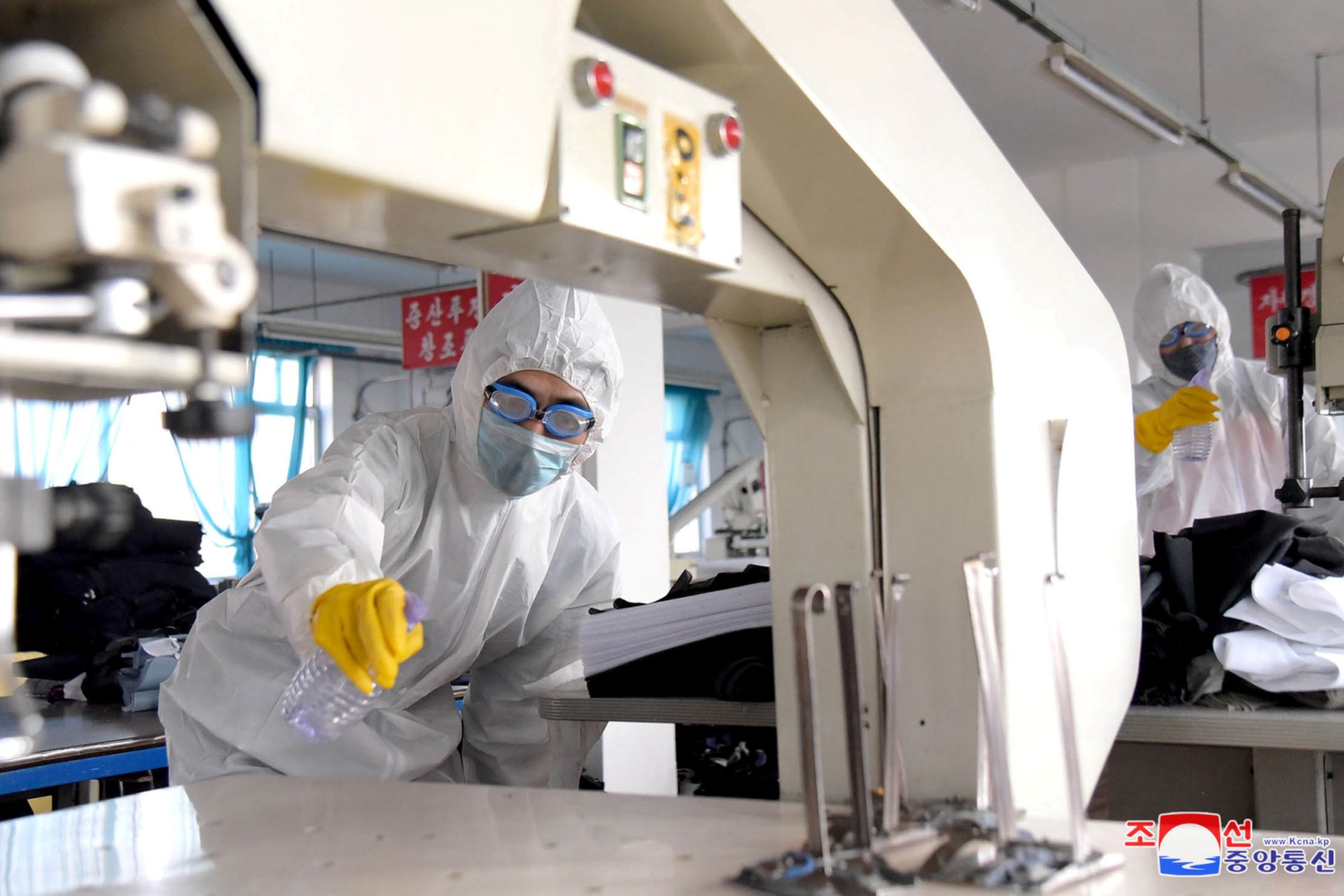North Korea’s Coronavirus Quarantine: More Effective Than Sanctions
Coronavirus will likely be far more effective than sanctions in inducing internal changes in North Korea.

By experts and staff
- Published
By
- Scott A. SnyderSenior Fellow for Korea Studies and Director of the Program on U.S.-Korea Policy
North Korea’s leadership has declared prevention of the spread of coronavirus a matter of “national survival” and moved rapidly to close its borders to halt the spread of the virus. Indeed, coronavirus could prove an existential threat to North Korea, given the manifest vulnerabilities of the country’s public health system to transmission of infectious diseases. But, is North Korea more endangered by self-imposed quarantine measures or by integration with the outside world?
North Korea’s situation has dramatically changed from the famine of the 1990s, when its isolation and stovepiped distribution channels led to an absolute food shortage and hundreds of thousands of fatalities. At that time, citizen dependency on the public distribution system magnified the rate of fatalities, forcing average citizens to turn to self-help rather than government-reliance. Today, North Koreans rely on internal markets that in turn benefit from dependence on international supply chains, so quarantines may entail more risk than benefit to average North Koreans, and eventually to the regime.
International sanctions are designed to impose economic isolation on North Korea through the U.S.-led “maximum pressure” campaign, which punishes North Korea’s flouting of UN Security Council resolutions on its nuclear and missile development. Sanctions deny North Korea access to international trade in sensitive goods and raise the cost of North Korean procurement of energy resources and other goods. Yet U.S.-led sanctions may prove much less effective than the unanticipated consequences of a self-imposed quarantine for North Korea’s supply chain.
The quarantine will likely fail to stop the spread of coronavirus into North Korea, if it hasn’t already. Swine flu from China has infected North Korean boar stocks and leaked into South Korea for months across the demilitarized zone dividing the two countries. There is a low likelihood that January flight cancelations were put in place early or effectively enough to prevent Chinese tourist or North Koreans returning from overseas from bringing the coronavirus into the country.
North Korea’s newfound vulnerabilities–whether in the public health sector or in the country’s susceptibility to international sanctions pressures–result from connections of North Korea to the international community rather than from isolation. The real question is whether the leadership can manage North Korea’s economic integration and its unintended political consequences.
In response to past crises like SARS and Ebola, North Korea has utilized quarantine measures to reduce exposure to international public health threats, but those diseases did not pose a near or direct threat to North Korea. In the event that coronavirus spreads to North Korea, there will be a disproportionately high number of fatalities, and North Korea will be forced to make international appeals for assistance in the form of protective masks and advanced medical detection equipment. At moments of vulnerability, North Korean leadership has shown temporary flexibility and accepted help from the outside. But once the crisis fades, temporary concessions to the outside world are quickly reversed.
Both the inability to-date of sanctions to reverse North Korea’s nuclear program and the likely inability of North Korea’s leadership to isolate itself from the negative public health effects of coronavirus feed into an ongoing debate: is it better to promote North Korea’s isolation or integration to achieve peace and denuclearization?
This debate has served as a periodic source of division between Moon administration pro-engagement advocates and Washington-based sanctions hawks. Pro-Moon engagers believe engagement will promote North Korea’s integration and give the leadership something to lose, hopefully curbing radical and destructive North Korean behavior. Washington-based sanctions supporters see them as a means of punishing, isolating, and forcing the North Korean leadership to make a choice between prosperity and denuclearization.
All too often, this debate occurs without sufficient attention to or understanding of the unintended consequences of sanctions, or the North Korean leadership’s ability to blunt the effects of externally imposed isolation or coopt the impact of greater interdependence or integration. Framing the debate in those terms assumes that external actors have the power to shape North Korea’s choices. Factors within North Korea that influence its leadership’s impulse to maintain control over the population are more likely to impact North Korea’s future course than external circumstances designed to force North Korean policy choices.
If the North Korean regime is primarily focused on controlling the pace of internal change, external parties should evaluate sanctions and engagement measures based on whether they reduce or enhance the ability of the regime to control the pace of change inside North Korea. Sanctions properly applied using this metric will serve as a scalpel that applies pressure to specific constituencies within North Korea’s elite, rather than as a sledgehammer that crushes North Korea. Inducements should wean the North Korean people from political loyalty to North Korea’s rulers, not provide the leadership with tools to enhance control over the lives of the people.
Coronavirus will likely be far more effective than sanctions in inducing internal changes in North Korea. North Korea’s leadership has imposed quarantine measures in an attempt to regain control over the situation, but the quarantine’s inevitable failure will ultimately diminish the regime’s control at the same time that a failure to control the virus could undermine the regime’s legitimacy. Plus, because a virus does not discriminate by nationality, it cannot be blamed for having a “hostile policy.” Unlike the most carefully assembled sanctions regime, viruses can exploit the preexisting failed conditions of a public health system that itself is a manifestation of North Korea’s failed regime.
This article was originally published here.